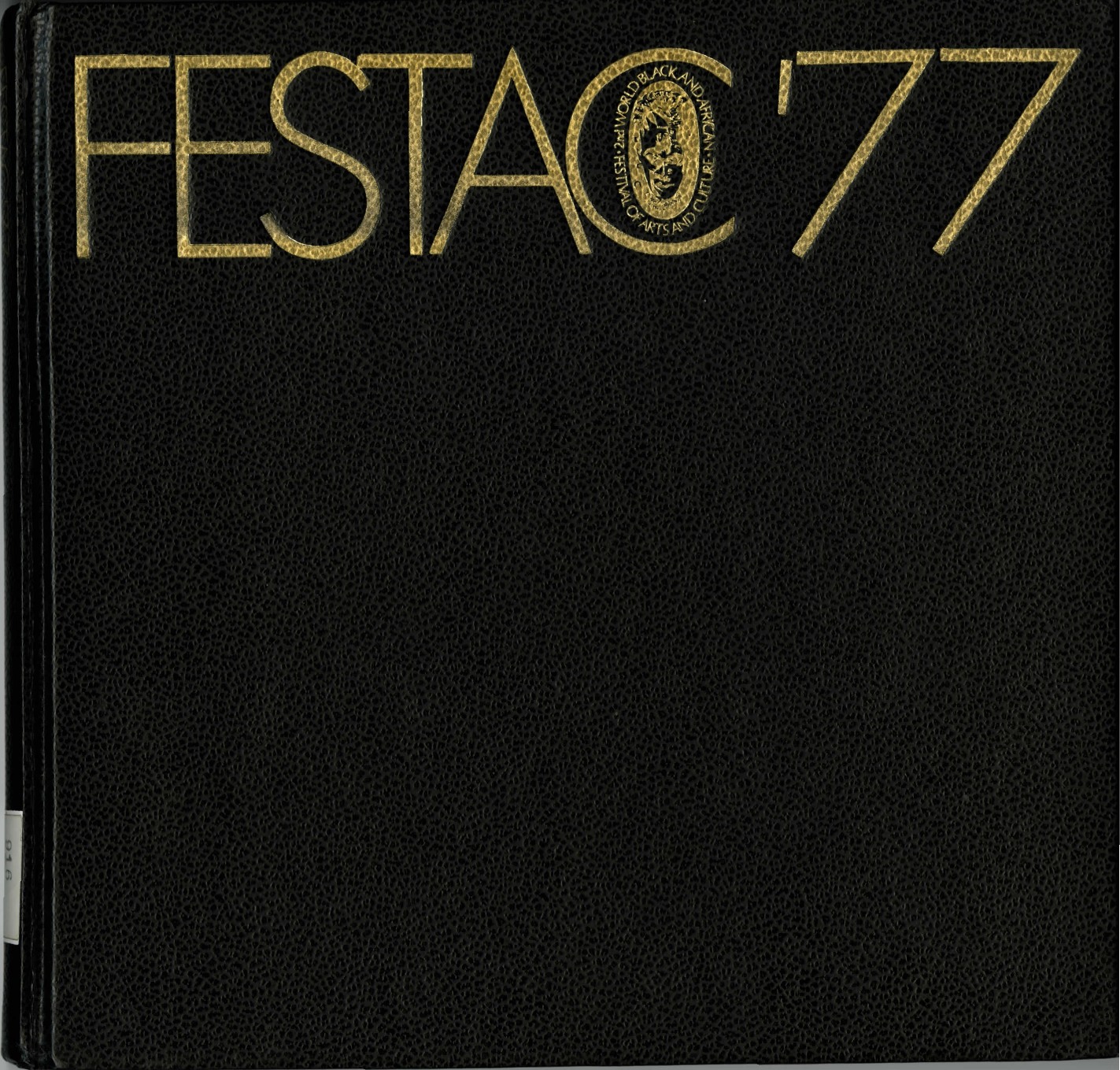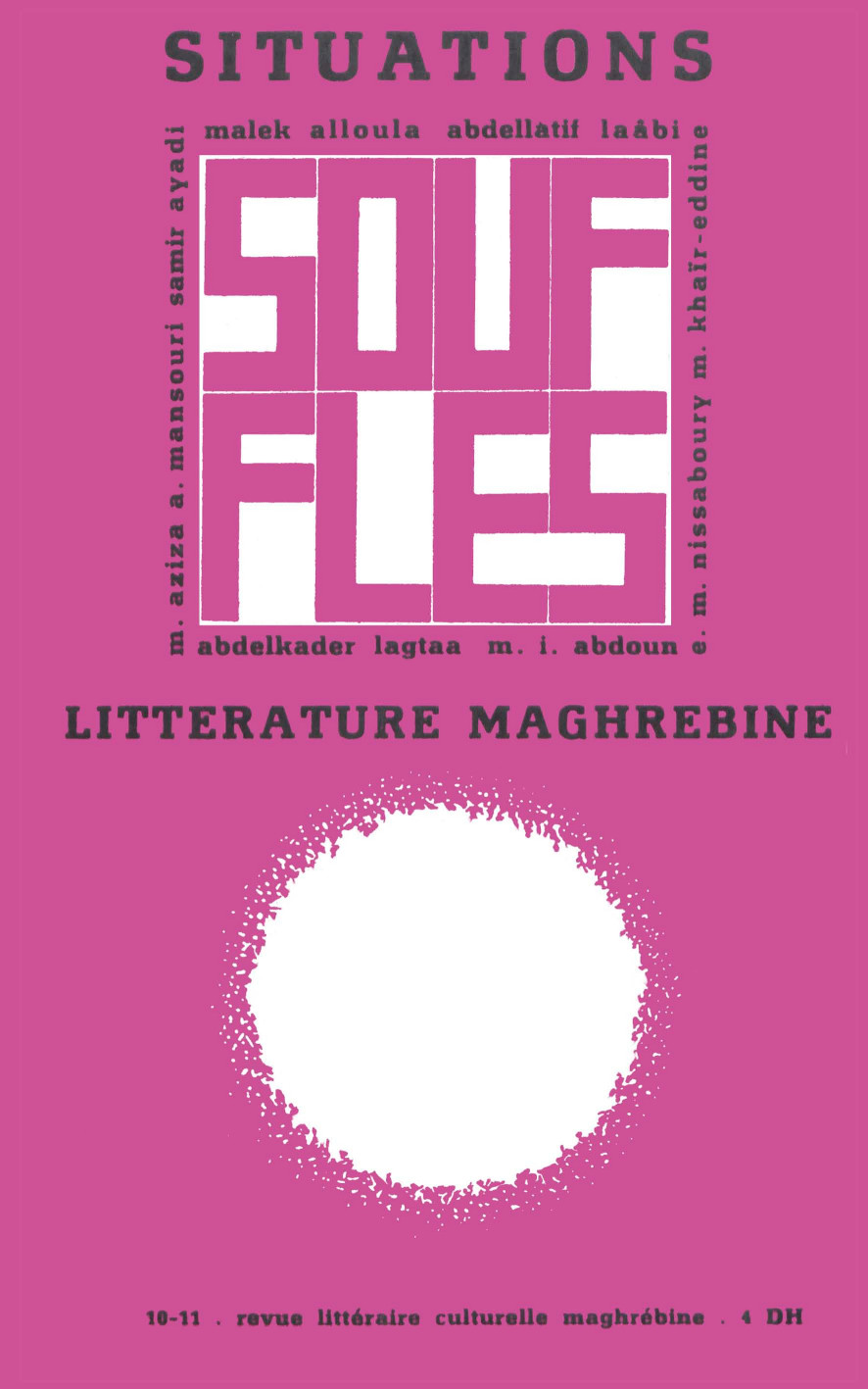FESTAC ’77 (1977)
Filed under book | Tags: · africa, art, black people, caribbean, diaspora, film, literature, music, négritude, pan-africanism, poetry

“Festac ’77, also known as the Second World Black and African Festival of Arts and Culture (the first was in Dakar, 1966), was a major international festival held in Lagos, Nigeria, from 15 January 1977 to 12 February 1977. The month-long event celebrated African culture and showcased to the world African music, fine art, literature, drama, dance and religion. About 16,000 participants, representing 56 African nations and countries of the African Diaspora, performed at the event.
Artists who performed at the festival included Stevie Wonder from United States, Gilberto Gil from Brazil, Bembeya Jazz National from Guinea, Mighty Sparrow from Trinidad and Tobago, Les Ballets Africains, South African Miriam Makeba, and Franco Luambo Makiadi. At the time it was held, it was the largest pan-African gathering to ever take place.” (Wikipedia)
Publisher Africa Journal Limited, London, and International Festival Committee, Lagos, 1977
152 pages
via Abdul Alkalimat
Film documentary (UNESCO, 1977, 26 MB)
Commentary: Arthur Monroe (Black Scholar, 1977), Iris Kay (African Arts, 1977), J. Southern (Black Perspective in Music, 1977), Moyibi Amoda (book-length evaluation, 1978, 80 MB).
PDF (134 MB)
Related documents:
General Programme (25 MB)
General Colloquium Programme (7 MB)
Visitors Guide to the Festival (2 MB)
Spotlight (2 MB)
Additional documentation (ed. Abdul Alkalimat)
David Macey: Frantz Fanon: A Biography (2000–)
Filed under book | Tags: · algeria, biography, colonialism, communism, existentialism, france, literature, marxism, négritude, philosophy, psychiatry, race, racism

“Born in Martinique, Frantz Fanon (1925–61) trained as a psychiatrist in Lyon before taking up a post in colonial Algeria. He had already experienced racism as a volunteer in the Free French Army, in which he saw combat at the end of the Second World War. In Algeria, Fanon came into contact with the Front de Libération Nationale, whose ruthless struggle for independence was met with exceptional violence from the French forces. He identified closely with the liberation movement, and his political sympathies eventually forced him out the country, whereupon he became a propagandist and ambassador for the FLN, as well as a seminal anticolonial theorist.
David Macey’s eloquent life of Fanon provides a comprehensive account of a complex individual’s personal, intellectual and political development. It is also a richly detailed depiction of postwar French culture. Fanon is revealed as a flawed and passionate humanist deeply committed to eradicating colonialism.”
First published by Picador, 2000
Second edition published by Verso, London, 2012
ISBN 9781844677733, 1844677737
xxii+639 pages
Reviews: Megan Vaughan (London Review of Books, 2001), Peter Lennon (The Guardian, 2001), Mark Christian (Journal of Colonialism and Colonial History, 2002), Gareth Stanton (History Workshop Journal, 2002), Ciaran Mulholland (Socialist World, 2002), Godwin Kwadwo Osei-Nyame (Research in African Literatures, 2004), Kirkus Reviews (2001), Publishers Weekly (2001), Stephen Howe (New Humanist, 2013).
Interview with author (Theory, Culture & Society, 2011).
Comment (0)Souffles: revue maghrébine littéraire et culturelle (1966-71) [French, Arabic]
Filed under magazine | Tags: · africa, art, film criticism, left, literature, maghreb, modernism, morocco, négritude, poetry


““This slim booklet contains dynamite,” wrote Policy in its 1966 review of new Moroccan quarterly magazine, Souffles. Instigated by a small group of self-professed “linguistic guerrillas” as “a manifesto for a new aesthetics in the Maghreb”, it became a conduit for a new generation of writers, artists, and intellectuals to stage a revolution against imperialist and colonial cultural domination. The starting point for this revolution was language.
From its first issue, Souffles posed an aggressive challenge to the traditional Francophone and Arabophone literary divides by encouraging experimentation, translations and collaborations. It wasn’t long before its trademark cover emblazoned with an intense black sun radiated throughout Africa, the Arab world, West Indies and the Black Atlantic. In the early 1970s the magazine changed focus. Motivated by the crushing Arab defeat in Six-Day War and the Paris uprisings, its founder, editor and publisher Abdellatif Laâbi declared that “literature was no longer sufficient.” After the 15th issue, dedicated to Palestine, Souffles underwent a major redesign, emerging as a new firebrand organ of leftist revolutionary group, Ila al-Amam. This new political agenda caught the attention of the authorities and in 1972 the magazine was banned and Laâbi arrested. While in prison he was awarded several international poetry prizes. After a long solidarity campaign, he regained his freedom in 1980.
Souffles was inspired by Frantz Fanon’s The Wretched of the Earth, as well as early postcolonial writers such Aime Cesaire, Mario de Andrade, and René Depestre and journals like Presence Africaine. Since its demise, few publications have matched its stature, appeal, or intellectual authority. Its influence can however be felt in contemporary magazines such as Le Journal, Nichane and Biddoun.” (Source)
Up to the double issue 10-11, the magazine was in French only, afterwards it also included Arabic section entitled Anfâs. The magazine cover was designed by painter Mohamed Melehi.
Edited by Abdellatif Laâbi
Published in Rabat, Morocco, 1966-71
via Bibliothèque nationale du royaume du Maroc
Editor
Writings about the magazine

